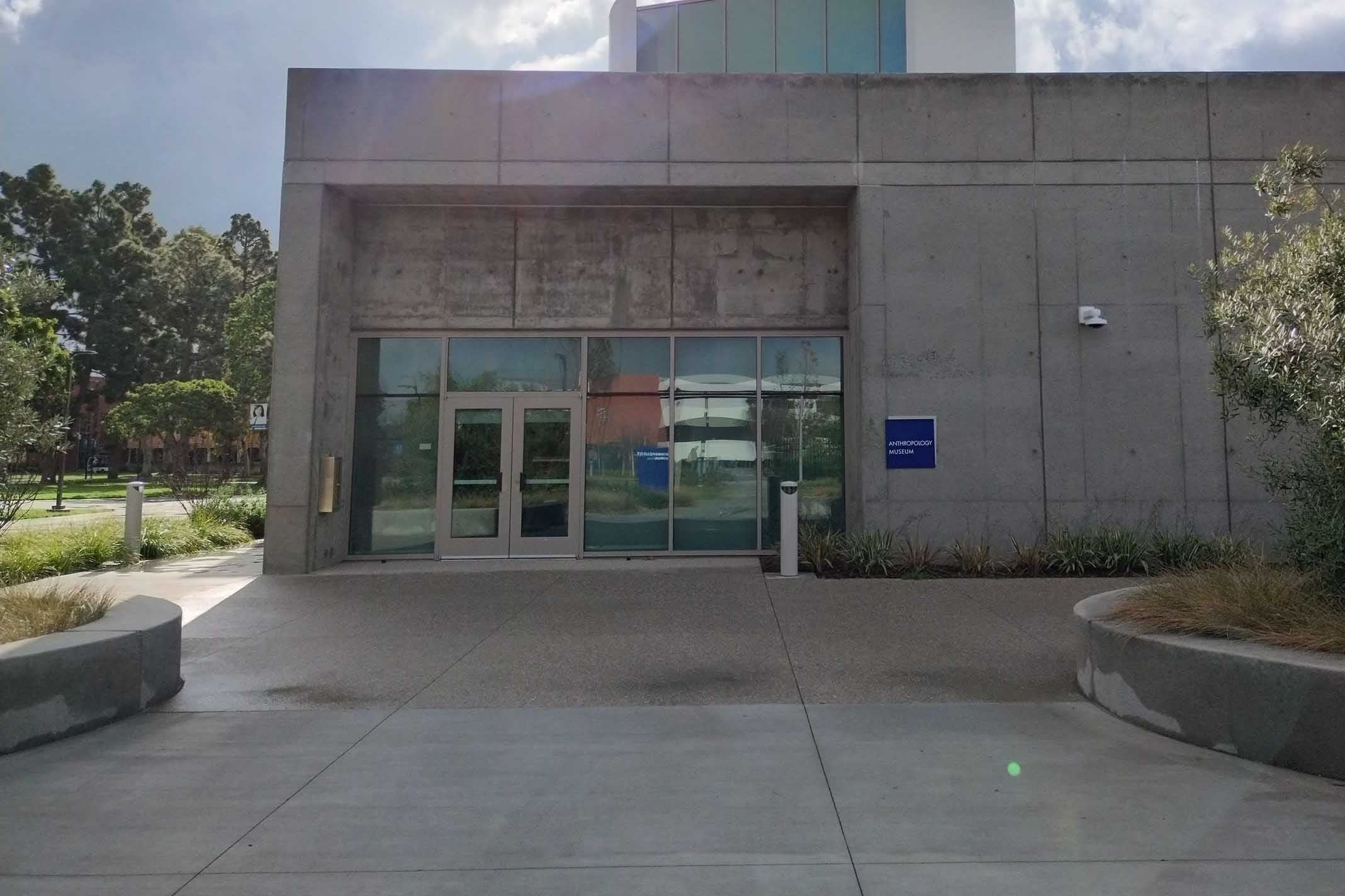
Anthropology Museum
Founded in the 1960’s by Dr. Walt Foster as a hands-on teaching museum, the El Camino College Anthropology Museum is a safe space where we are dedicated to offering a perspective that represents the diversity and equality that all human beings share.
A student-centered component, taking place in the Anthropology Museum, is ANTH 20: Introduction to Museum Studies, where students learn to conceive, design, and present their own museum exhibits. These student-conceived displays, tailored to their peers, function as instruments in crafting equitable and diverse exhibits that reflect the lived experiences and attributes of the campus community.
Explore the CollectionOpen Hours
Open: Monday-Thursday - 10:00 am - 3:00 pm
Upcoming Events:
February 2025:
2/18: Welcome to Anthropology Club 2:00PM
2/19: Welcome Workshop Tour of Museum 3:00PM
2/20: Anthropology Day Event 3:00PM
2/24: Mythic Monday Discussion: What is a Myth? 2:30PM
2/25: Anthropology Club: Pyramid Around the World 2:00PM
2/26: Workshop for Hieroglyphics 3:00PM
2/27: Ethnographic Book Club
March 2025:
3/11: Anthropology Club: Monkeying Around with Anthropology 2:00PM
3/18: Anthropology Club: Anthropology of Political Violence 2:00PM
3/25: Anthropology Club: Linguistic Anthropology: Imaginary Languages 2:00PM
April 2025:
4/1: Anthropology Club: Anthropology of Comedy 2:00PM
4/8: Anthropology Club: Anthropology of Astrology/Astronomy 2:00PM
4/22: Anthropology Club: Environmental Anthropology 2:00PM
4/29: Anthropology Club: Name that Hominin 2:00PM
May 2025:
5/6: Anthropology Club: Anthropology of Science Fiction 2:00PM
5/13: Anthropology Club: Anthropology/Psychology of Personality-Mental Health Awareness
2:00PM
5/20: Anthropology Club: What is Your Favorite Archaeological Site? 2:00PM
5/27: Anthropology Club: Solar Deities 2:00PM
El Camino College stands on the ancestral homeland of the Gabrielino-Tongva people, the traditional caretakers of Tovaangar (the Los Angeles Basin and Southern Channel Islands). We recognize that this institution benefits from the violent displacement and disenfranchisement of those who inhabited and stewarded this land for generations. We pay our respect to the Gabrielino-Tongva people, past and present, and their connection to this space.
We are also aware of the racially discriminatory condemnation of the Gordon Manor tract, a Black residential development project proposed for this land in 1926. As a disseminator of truth in education, we acknowledge a history of involuntary sacrifice that allowed for the establishment and continued existence of El Camino College.